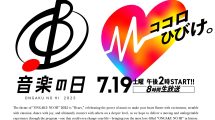Billboard’s subscriber only Billboard Pro section recently published an article titled “Inside the Business of Western Songwriters in K-Pop & J-Pop: ‘The Money Is Too Good to Ignore’.” Given that this article is only available to subscribers, we have decided to share some points from it in regards to the JPop sections of the article.
The article starts by saying that the global breakthroughs of Korean acts like BTS and BLACKPINK and Japanese acts like XG more recently made Western talent take the songwriting opportunities in Asia’s two largest pop markets more seriously. Now, these opportunities are among the most lucrative and sought after jobs in the global publishing business, drawing in top American hitmakers.
However, to get a hit in Korea or Japan, Western songwriters must conform to the local ways of doing business. Both markets have clear distinctions from the American music industry. Normally during this process, English language demos are sent to a native, local language songwriter, who then rewrites or translates most, or all, of the original lyrics into Korean or Japanese, earning them a songwriting credit in the process. According to sources, roughly 80% of KPop songs and 30%-40% of JPop songs released today have ties to American or other Western sources, usually with completely different lyrics.
Kevin Woo, formerly of the KPop group U-KISS now works as a songwriter and has translated English demos into Korean. He speaks on this process, saying, “When demos are sent to Korean labels, they are almost always in English. That’s how we first hear the songs as artists and idols, in English. Then we pick whichever track we vibe with, and then they get that song translated into Korean.” According to Japanese music executives, this is similar to the process in JPop.
This is a fast-growing part of the job description for Korean and Japanese songwriters, given that more and more songs are imported from Westerners each year. Avex USA co-founder and CEO Naoki Osada says that since he started in the Japanese music industry 20 years ago, the number of songs written by Americans has more than doubled.
To adapt these English lyric demos, Young Chance, a Korean songwriter and producer, says, “We usually keep the title of the song from the demo, but then when we translate, we take a different perspective on the same title.” In Japan, where speaking English as a second language is less common and there is less emphasis on capturing a global audience overall, it is even more important to rework the words of a Western demo to fit the needs of the local listener.
Common words and phrases like “let’s go” or “boom,” or slang like “Westside,” which are often derived from American rap music, might still make the cut in a KPop or JPop song, but that’s about it. The only time this differs from the norm is when it’s a song intended to be a Western crossover hit, in which case it’s kept in English.
Because Western songwriters now expect their lyrics to be tossed almost entirely, lyric writing is not highly emphasized when writing demos for KPop and JPop.
On the business side, Western songwriters know that when they pitch to Korean and Japanese labels, they will have to give up a significant amount of publishing to local lyricists. In Korea, it’s common to give up 12.5% to the person who rewrites the lyrics; however, in Japan, 50% is typically expected. This is due to differences in the publishing industries of Western countries and that of Japan.
“In Japan, publishing is completely divided into two halves: one lyric, one melody,” says Osada. “Copyright ownership is 50/50 and it is fixed.” In America, songwriters are often also the producers, crafting lyrics, melody and track. They work on all three elements with other creatives in the same session. However, in Japan, songwriters and producers take a much different approach. “There are three roles: one is the producer, who is also called the ‘track maker’ or arranger,” says Osada. “Some topliners do lyrics and melody, but there are people that exist who only write lyrics. Each of the three works alone in their own room by themselves, and then they send the completed demo. It’s not like Western writers where they all work together.”
Western songwriters largely believe these opportunities in Asia are well worth it, even though up to half of their publishing is taken away. In the current era, where streaming’s popularity has undercut songwriters’ potential earnings in the United States and other Western nations, Korean and Japanese audiences still purchase full albums, physically and digitally, meaning “the publishing money in Korea and Japan really is unlike anything else for a writer,” says Torsten Ingvaldsen, an independent A&R who is part of the growing class of middlemen that connect Western writers to KPop.
But why do Japanese and Korean labels use so many songs from Western songwriters when their local industries are thriving? First, JPop and KPop have always found inspiration from American music, especially bubblegum pop and rap, so many believe working with Western, especially American, talent is a natural fit. Taking foreign demos also might increase a an act’s ability to capture the attention, and money, of the music market abroad as well as at home.
Ingvaldsen also personally believes that there’s a “lack of songwriters locally.” He explains, “I’ve found there’s only a few major (Korean) songwriters that participate on everything from every major label.” Osada says that in Japan the cohort of working songwriters is “more condensed for sure.” He adds it’s a more “hidden role” in Japan’s industry as well. “I see big differences in the personality of writers there and in the US. In the US, there are writers that are almost like artists, very creatively outgoing, outspoken. Japanese writers and producers are introverts.”
And this trend shows no signs of stopping, as the biggest Japanese and Korean labels continue to strengthen their ties to the West, particularly in the United States. Hajime Harada, an A&R at Avex USA, says, “Since I started at Avex USA in 2022, the percentage of US songs that have landed with Japanese artists has easily doubled.” His boss, Osada, believes this is thanks to Avex’s increasing investment in their American outpost in West Hollywood, California.
New AI technology might also present more opportunities for lyric rewrites from English in the future. Osada could see it working for Japanese audiences, who have appreciated Japanese translations of KPop songs in the past and may be open to AI making those translations more commonplace. “I think there’s some market there,” Osada says. “Japanese people see lyrics as a very important factor in enjoying songs, so I think local language translation could help.”
As the music market becomes increasingly global, publishing professionals are confident the trend of pitching Western records to Eastern talent will keep expanding, with some even looking to China and India as possible future frontiers. “The money in exporting pitch records is just too good to ignore,” says Ingvladsen.


















